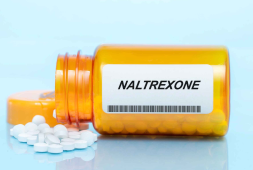
Stroke patients experience difficulty in living their life normally after the incident. They often need to take medicines as well as go to therapy to regain the use of either their muscles or memory.
A large trial that looked into the efficacy of a celery-seed-derived neuroprotectant drug for use in ischemic stroke cases shows that this could be a potential way to help them recover quickly.
The patients who suffered a stroke were given the medicine called butylphthalide. It was 70 percent more effective when it came to giving them a chance to see improvement in their neurological and general living outcomes within 90 days after a stroke. This was a finding that came from more than 1,000 cases.
Butylphthalide has already been given a stamp of approval by health experts for use in stroke treatment in China. Currently in the U.S., FDA has yet to approve its use.
How this miracle medicine works hasn’t been seen clearly just yet, but animal studies suggest a variety of probable mechanisms. The meds may assist in helping protect brain tissue from damage when the supply of oxygenated blood was cut off. When this happens, the meds work with existing clot-busting drugs or procedures in order to flush out blood clots in ischemic stroke conditions.
The trial that was made involved 1,216 patients who were admitted for stroke in China. This was where the drug was approved. It was given along with a tissue plasminogen activator (tPA) and/or a mechanical clot removal procedure. These were two of the first methods used by health experts when dealing with ischemic, or clot strokes.
Each year, over 795,000 people in the U.S suffer from a stroke, with 87 percent of the cases considered to be the ischemic type. The burden of these events has become too big and this type of stroke is the main cause of disability for the older people.
“This is the first trial to show the benefit of using a medication that protects the brain from damage caused by a lack of oxygen to brain tissue. The medication was given to patients with acute ischemic stroke who were also receiving treatment to restore blood flow to the brain,” said Baixue Jia, M.D. He is the co-author of the study.
The patients studied were asked to go through analysis for stroke symptoms 90 days after it happened, and those who took the celery-seed-derived butylphthalide showed better results 70 percent of the time when compared to those who took a placebo.
“The next step should be investigating the exact mechanisms of butylphthalide in humans,” Jia said. The other authors of the study also took note of the relationship between the medication and eating celery seed or celery. This should not be considered as existent because the medicine was merely derived from the vegetable.
It also must be noted that there are also other methods for clearing blood clots. This means that the study made is limited to those patients who only received two of the available means.
The results of the study will soon be presented to the International Stroke Conference that was set in Dallas, Texas.



